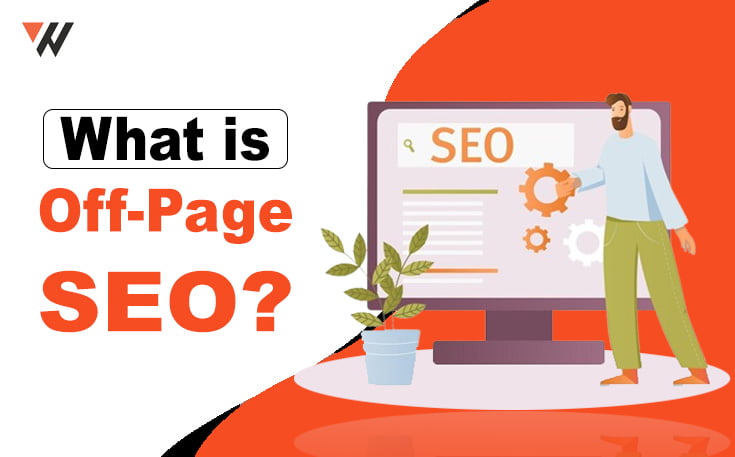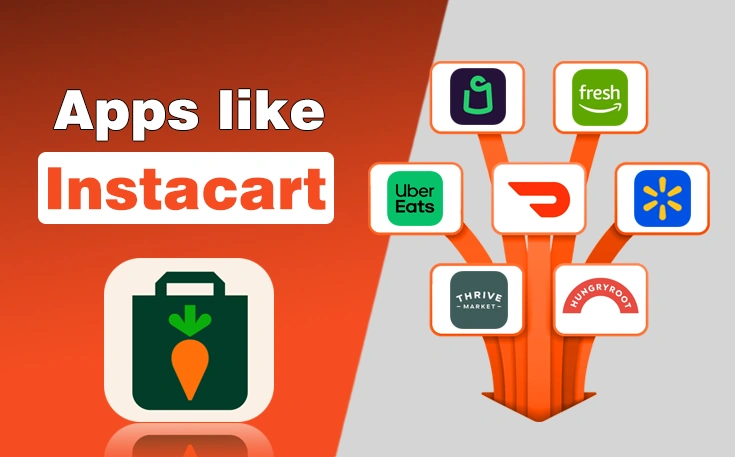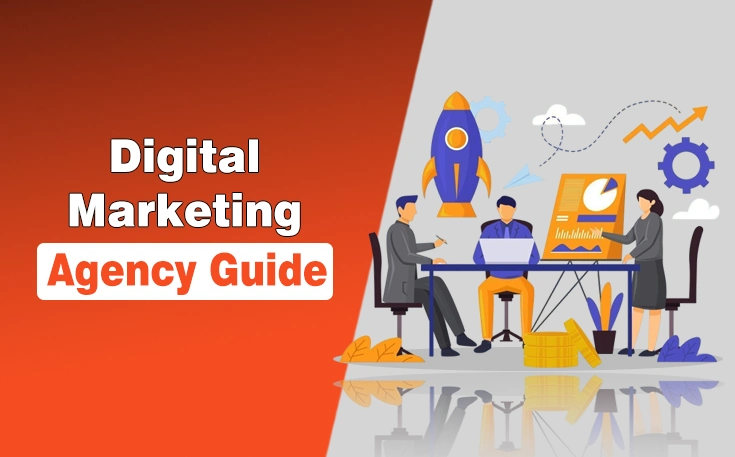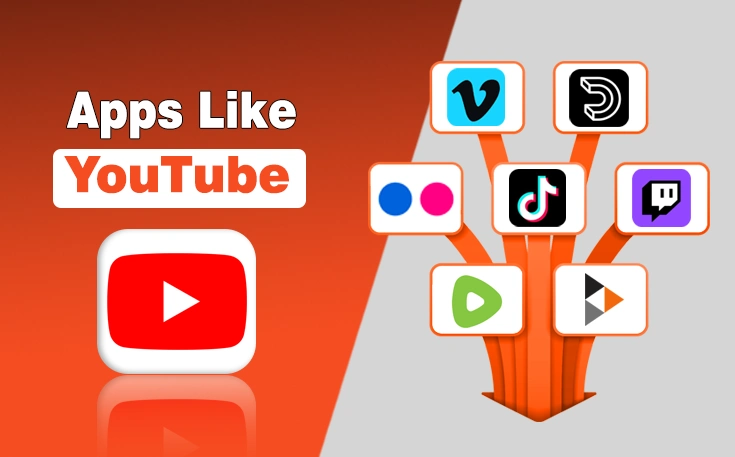Howdy Small business owners? Are you struggling to drive organic traffic and improve your website ranking? So, you may be looking for the best Off-page SEO techniques to get out of the competition.
Off-page SEO needs different approaches to On-page SEO, you will have to go beyond Meta title, description, keyword research, and quality content. Off-page focuses on external website factors to maintain website visibility in search engine optimization.
It is about building a brand reputation through high-quality link building, competitor analysis, broken link fixing, improving page speed and image optimization.
In this guide, I will discuss Off-page SEO and how it helps you boost brand awareness online.
What is Off-Page SEO?
Off-page SEO means practical actions and strategies implemented for your website to improve its visibility and credibility. These techniques help to improve site ranking and optimize for SERP.
It involves building website authority over search engines and the internet to be recognized as a source of trust. This technique lets search engines understand what others think about your site, services, or products.
Combining off-page SEO with technical SEO and on-page SEO can help you achieve your business’s goals of crawling, indexing, visibility, and traffic.
Off-Page SEO Checklist to Improve Website Performance
SEO is one effective way to drive organic traffic and improve website position. However, SEO has three main types, On-page SEO, Off-page SEO, and Technical SEO, each has its own advantages.
Here, I have discussed an Off-page SEO checklist and techniques to build your brand reputation.
1. Link Building
Link Building is one of the most effective methods of off-page SEO to acquire links from trustworthy websites to boost your website visibility for search engines. These links helps to rank in the first page results.
Backlinks serve as a vote of confidence, so make sure to get backlinks from quality, trust worthy and high DA domain website.
There are two types of links:
- Natural Links: Natural Links are links that other sites link to your article as source links because they like your article information. You can get these links without doing anything but quality content.
- Self-created Links: You create self-created links through social media posting, forum posting, blog commenting, or website link exchange.
2. Guest Posting
Guest posting is an off-page SEO strategy to increase user engagement through others’ blogs or websites.
Write and publish your post with your site link to a high-quality website. Guest posting is helpful for driving new users, increasing your website’s credibility, and building connections with other bloggers.
You can collaborate with other bloggers to post your article and allow them to post their articles on your site. In this way, you can build high-quality links to your site.
A well-researched, useful, and accurate information content draws the attention of new users to your expertise and blog.
3. Local SEO Strategies
Optimizing websites in localized search is an essential part of SEO and Off-page SEO.
This technique is helpful to make your site visible in targeted geography location. Also, it is beneficial if you are targeting local customer in specific locations.
Local SEO strategies involve listing your business site on Google My Business, local businesses directly, and local backlinks.
- Know your local audience interests to find keywords
- Optimize the site for local search results
- Location-specific landing pages
- Acquire local business backlinks
4. Social Media Marketing
Social media marketing is another best Off -page SEO practice to share content over different social media platforms to increase your site and business awareness. However, there are many social media platforms where you can share, like Linkedin, facebook, Instagram, X (Twitter), and Pinterest.
It helps to build a strong relationship with users and encourages them to interaction and engage. Also, improves impressions and clicks and drives new traffic to the site.
5. Improve Page Speed
If site has slow loading speed then there are chances that users will not back to your site. However, if you want to improve user experience, check regularly your site pages speed to know how quickly they response to users.
Optimizing website speed improves users’ experience, which also gives search engines a green signal to boost website rankings.
6. Competitor Analysis
Competitor backlinks and profile analysis is an SEO technique to understand competitors’ SEO performance and keyword optimization.
You can gain insights of your competitor’s strengths and weaknesses to improve your own strategies. Check their backlink profile to know where you can link your keywords for boost.
Competitor analysis can be done manually or through different SEO tools.
7. Blog Commenting
To increase conversation between experts about your field, participate in relevant blog commenting.
This strategy helps to share your expertise, increase conversation, and engage with other experts to make your blog reputable.
However, it is important to be relevant to your field and engage carefully to increase conversations that benefit you.
8. Broken Link Building
Broken link building is a smart strategy to find other websites’ broken links and contact the site owner to inform them about the broken link and offer your content as a replacement.
If the broken link belongs to your site, request it for replacement. If they have outdated broken, you can also simply ask them to replace them with your peace of content.
This will improve website visibility, reduce error 404 redirects and improve user experience.
9. Forum Posting
Social media community forums are now becoming engaging platforms for discussions. You can find your niche relevant forum and participate in answering questions and giving solutions to others’ problems.
Start a discussion about your products, services or business, to build connections with other experts. Here you can share your article link if you think your guide can solve their queries.
Off-Page SEO vs On-Page SEO
Here is a short difference between Off-page SEO and On-page SEO:
| Off-Page SEO | On-page SEO |
|---|---|
| Off-page means strategies and techniques outside of the website to increase credibility, authority, and visibility. | On-page SEO means using strategies to optimize elements to improve site position for SERP. Elements to optimize, Title, Meta Description, internal linking, content, Headings, adding FAQs, bulleted lists, and HTML tags. |
| Link building, Guest posting, local SEO, competitor analysis, blog commenting, forum posting, broken link building, social media marketing, and brand promotion. | It involves page optimization keyword research to make the content user-friendly and cater to your target audience. |
| Makes trustworthy and improves popularity through high-quality backlinks. | Improves user experience, site pages, relevancy, and readability. |
| Helps to increase brand awareness, and long-term results for SERP expands online reach, drive traffic to your website | Helps the Search Engine to understand your website content, purpose, and context. |
How Off-Page SEO is Helpful for SERP
Here is how Off-page SEO is helpful for SERP:
1 – Improve Ranking
Off-page seo techniques like quality backlinks and other strategies are green signals for search engines to recognize the website is trustworthy. When a search recognizes the website as a trusty source then it will rank its article in the first page results.
This helps to increase the organic traffic which improves the website ranking.
2 – Website Visibility
Different Off-page SEO strategies, such as blog commenting, social media marketing, and influencer collaboration, increase the website’s visibility.
These promotion posts to a large audience showcase your brand identity and build trust between the blog and users. So, large organic traffic through social platforms results in an enhanced online presence.
3 – Brand Reputation
Regularly engaging with users and industry experts through social listening, feedback, and reviews help improve the online brand’s reputation. However, more people trust your website if it has a strong reputation over the internet and search engines.
So, Off-page SEO strategies are effective ways to maintain your positive image, address users’ queries, and build a trustworthy relationship with users and search engines. It will improve brand awareness and search page rankings.
4 – User Engagement
Off-page SEO strategies, such as forum posting, blog commenting, and social media marketing, lead to user engagement. This will increase website visits, user interactions, higher conversations, and longer sessions.
So, when users frequently visit your site pages, engage in conversations, and share with friends or family, it boosts the online visibility to rank in the search engine and improves authority.
5 – Drives Traffic
Similar to user engagement, off-page SEO strategies drive organic traffic to your site. Consistently sharing content on social media platforms, guest posting, and forum posting attracts users’ attention which helps to drive them to your blog.
Organic traffic to your site not only boosts online visibility but also helps the SERP rank in result pages and makes it a trustworthy source.
Summary Lines
That’s all about what is off-page SEO and how it can help you boost your rankings in the SERP. You have to create backlinks on top websites with the help of guest posting to improve the domain authority of your site. Furthermore, writing SEO-optimized articles can signal search engines to rank you higher for a specific topic.
Other off-page practices including likes of competitor analysis, blog commenting, and broken link building are also essential for long-term results. You have to combine the off-page SEO tactics with that of on-page SEO for optimal benefits.





